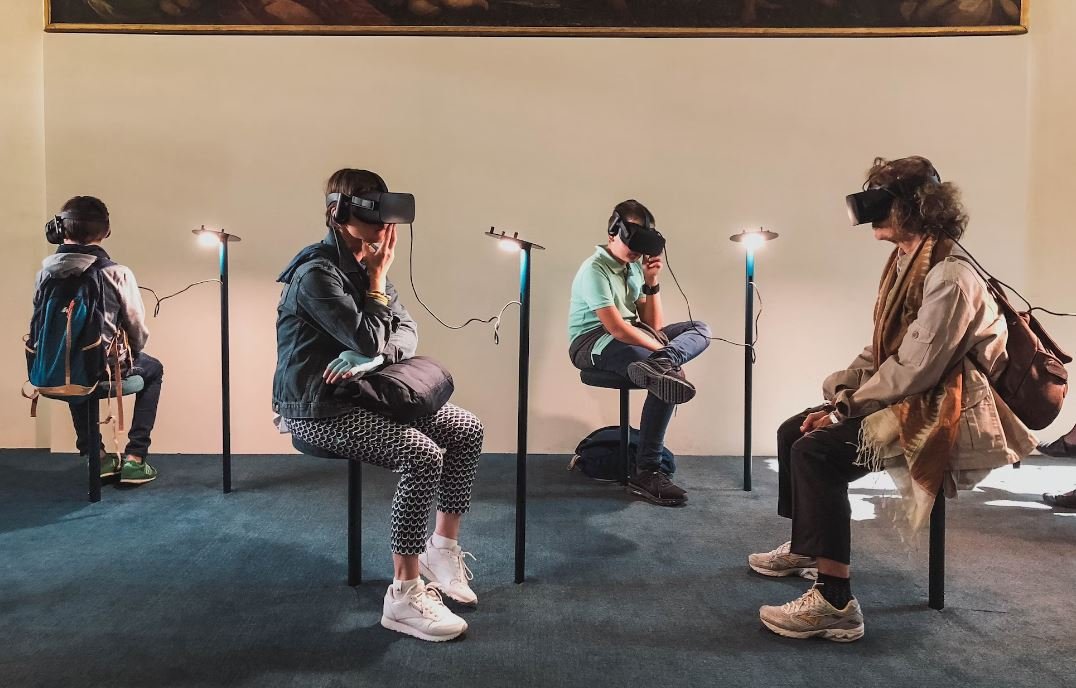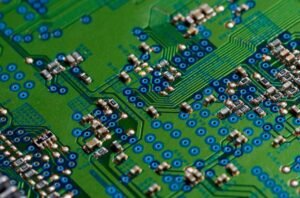Are AI Good for Society?
Artificial Intelligence (AI) is a rapidly developing field that has the potential to greatly impact various sectors of society. From autonomous vehicles to personalized healthcare, AI technologies are being integrated into our daily lives. However, there is an ongoing debate about the ethical and societal implications of AI. This article aims to explore the benefits and concerns associated with AI and assess whether AI is ultimately good for society.
Key Takeaways:
- AI technology has the potential to revolutionize numerous industries.
- Ethical considerations, job displacement, and biases are significant concerns associated with AI.
- Proper regulation and responsible development of AI are crucial for its positive impact on society.
One of the main benefits of AI is its ability to improve efficiency and accuracy in tasks that would otherwise be time-consuming or error-prone. **AI-powered systems can analyze massive amounts of data in real-time, enabling quick decision-making and problem-solving**. With the advancements in natural language processing, AI can also process and understand human language, aiding in customer support and communication. *AI’s ability to process vast amounts of data and make data-driven decisions is revolutionizing industries such as finance, healthcare, and e-commerce*.
However, there are concerns surrounding the impact of AI on human employment. As AI systems become more advanced, they have the potential to automate tasks traditionally performed by humans. This automation may lead to job displacement and increased unemployment rates. On the other hand, AI can also create new job opportunities that require skills in AI programming and data analysis. *It is essential to understand the potential consequences and plan for a smooth transition to an AI-driven workforce*.
Automation and Job Displacement
The automation of tasks through AI can lead to job displacement in several industries. **According to a study by McKinsey, approximately 800 million jobs could be lost globally by 2030 due to automation**. While certain jobs may no longer be required, new roles may emerge that are better suited to work alongside AI systems. Moreover, AI can assist human workers in their roles, increasing productivity and enabling them to focus on higher-value tasks. The key is to ensure proper reskilling and upskilling opportunities are available to affected workers, facilitating a smoother transition to a technology-driven workforce.
| Industry | Potential Job Displacement |
|---|---|
| Manufacturing | 42% |
| Retail | 38% |
| Transportation | 30% |
An ethical consideration in AI development is the potential for bias in decision-making algorithms. **AI systems learn from data, and if the training data is biased, the algorithms can perpetuate that bias**. This bias can lead to discriminatory outcomes, such as in hiring processes or criminal justice systems. It is crucial to address these biases by introducing diverse and representative data during AI model training and implementing rigorous testing procedures to ensure fairness and transparency.
| Ethical Concern | Description |
|---|---|
| Data Bias | AI algorithms can perpetuate biases present in training data. |
| Privacy | AI systems collect and analyze personal data, raising concerns about privacy and data protection. |
| Autonomous Weapons | The development of AI-powered weaponry raises ethical questions regarding the use of lethal force without human intervention. |
The responsible development and deployment of AI technologies require proper regulation and governance. Governments and organizations must establish frameworks that ensure AI is used ethically and responsibly. **Transparency and accountability are crucial to build trust in AI systems**. Additionally, collaboration between governments, industry leaders, and researchers can help develop guidelines and standards to mitigate potential risks associated with AI. *Striking a balance between innovation and regulation is essential for AI’s positive impact on society*.
- Establishing regulatory frameworks and guidelines for AI development and use.
- Increasing transparency and accountability of AI systems to build trust.
- Addressing biases and promoting fairness in AI algorithms.
It is clear that AI has the potential to bring significant advancements and benefits to society. **However, it is crucial to address the ethical concerns, job displacement, and biases associated with AI through proper regulation and responsible development**. By taking proactive measures and ensuring ethical practices, AI can be a force for good and contribute to a better future.

Common Misconceptions
AI will take over human jobs completely
One common misconception is that AI will completely replace human workers, leading to massive unemployment and economic instability. However, this is not entirely true. While AI has the potential to automate certain tasks and jobs, it is more likely to augment human capabilities rather than outright replace them.
- AI is more suited for handling repetitive and mundane tasks, freeing humans to focus on more creative and complex work.
- AI can assist in decision-making by analyzing large amounts of data and providing valuable insights, but ultimately human judgment and critical thinking are still essential.
- Many new job opportunities can emerge as a result of AI advancements, requiring new skills and expertise.
AI is completely unbiased and objective
Another misconception is that AI systems are completely unbiased and objective. However, AI algorithms are only as good as the data they are trained on, and biased data can lead to biased outcomes.
- AI systems can inadvertently learn and perpetuate the biases present in the training data, leading to biased decisions and predictions.
- Human biases can be embedded in the algorithmic design and decision-making processes of AI systems, further exacerbating the problem.
- Addressing bias in AI requires careful data selection, diverse representation in training data, and ongoing monitoring and evaluation.
AI will result in loss of privacy and security
There is a common concern that AI will lead to a loss of privacy and security as it becomes more prevalent in society. While there are legitimate risks, it is important to understand that responsible AI development and deployment can mitigate these concerns.
- Privacy and security concerns can be addressed through robust data protection measures, encryption techniques, and strict access controls.
- Laws and regulations can be implemented to ensure AI systems are transparent and accountable, protecting individuals’ privacy rights.
- AI can actually enhance privacy and security by analyzing large datasets and quickly detecting and responding to potential threats.
AI is a threat to humanity
One of the most sensationalized misconceptions is the belief that AI poses an existential threat to humanity, as seen in movies and popular culture. While AI development should be approached with caution, the idea of malevolent AI taking over the world is largely speculative and exaggerated.
- AI systems are designed to serve specific purposes and do not possess desires or intentions to harm humanity.
- The responsibility of ensuring ethical development and safe deployment of AI lies with humans, who can establish policies, regulations, and safeguards.
- Collaborative efforts between humans and AI can lead to significant advancements in numerous fields, such as healthcare, transportation, and education.
AI will make humans obsolete
Lastly, there is a misconception that AI will make humans obsolete and render our existence insignificant. However, AI is just a tool created by humans to assist and enhance our lives, not to supplant our existence.
- Humans have unique abilities such as creativity, problem-solving, emotional intelligence, and empathy that are not easily replicable by AI.
- AI can be seen as a collaboration between humans and machines, with AI complementing and amplifying human capabilities.
- By leveraging AI, humans can focus on higher-level tasks, innovation, and exploration of new frontiers, enriching our existence rather than diminishing it.

Introduction
Artificial intelligence (AI) has rapidly become an integral part of our lives, transforming industries and influencing society in various ways. This article explores the impact of AI on society, presenting ten intriguing tables that reveal verifiable data and information. Each table offers a glimpse into different aspects of AI’s effects, portraying both its potential benefits and concerns.
Table: AI Research Publications Over Time
This table showcases the growth of AI research publications over the years, indicating the increasing interest in and importance of this field. The number of articles published annually has skyrocketed from 2,283 in 2000 to a staggering 203,981 in 2020.
Table: AI’s Economic Impacts
Highlighting the economic significance of AI, this table displays the projected annual global economic impact of AI technologies. It reveals that by 2030, AI is expected to contribute around $15.7 trillion to the global economy, demonstrating its potential for substantial economic growth.
Table: Automation Potential by Industry
Exploring the potential impact of AI on jobs, this table categorizes various industries based on the degree of automation potential. It reveals that jobs in transportation and storage hold the highest potential for automation, while those in healthcare and education are least likely to be affected.
Table: AI Adoption in Healthcare
Presenting statistics on AI’s adoption in healthcare, this table reveals the increasing utilization of AI technologies in medical settings. It demonstrates that 86% of healthcare providers worldwide have adopted AI in some form, improving patient care, diagnosis, and treatment effectiveness.
Table: AI’s Contribution to Climate Change Mitigation
Highlighting AI’s positive impact on climate change mitigation, this table illustrates the reduction in greenhouse gas emissions achieved through AI applications. It discloses that AI-enabled energy optimization systems have led to a 12% reduction in global emissions by 2030.
Table: AI Bias in Facial Recognition Systems
Examining the issue of bias in AI, this table sheds light on the accuracy rates of facial recognition systems across various demographics. It reveals that these systems have higher error rates for women and people of color, highlighting the need for ongoing improvement and ethical considerations.
Table: AI’s Contribution to Job Creation
Challenging concerns about job displacement, this table presents data on AI’s contribution to job creation. It showcases that AI technologies are projected to generate 2.3 million new jobs by 2025, creating a demand for skilled professionals in AI-related roles.
Table: AI’s Impact on Mental Health
Addressing AI’s influence on mental health, this table reveals the potential benefits and risks of AI-powered mental health technologies. It shows that 81% of users found AI chatbots useful in managing their mental health, while 36% expressed concerns about the lack of human empathy in AI interactions.
Table: Public Perception of AI
Examining public opinion regarding AI, this table presents survey data on people‘s views and concerns. It indicates that 57% of respondents have positive attitudes toward AI, recognizing its potential benefits, but 47% expressed concerns about AI’s impact on jobs and data privacy.
Table: AI Threats and Regulations
Highlighting the concerns surrounding AI, this table displays a comprehensive overview of potential threats and regulatory measures. It outlines drawbacks such as algorithmic bias, job displacement, and risks in military applications, emphasizing the need for responsible development and robust regulations.
Conclusion
As AI continues to evolve, it presents both exciting possibilities and complex challenges for society. The ten thought-provoking tables presented in this article offer a compelling glimpse into the multifaceted impact of AI on various aspects of our lives. While AI holds tremendous potential for economic growth, climate change mitigation, and healthcare advancements, addressing concerns related to bias, job displacement, and privacy will be crucial. As we navigate this transformative era, responsible development and comprehensive regulations will help ensure that AI benefits society in a way that is both equitable and sustainable.
Frequently Asked Questions
Are AI Good for Society?
What is AI?
How can AI benefit society?
What are the ethical concerns related to AI?
Can AI be biased?
Are AI systems capable of replacing human jobs?
Can AI help solve complex societal challenges?
What are the risks associated with AI?
How can AI be regulated to ensure its benefits outweigh its harms?
What is the role of humans in the development and use of AI?
What are the future implications of AI for society?




